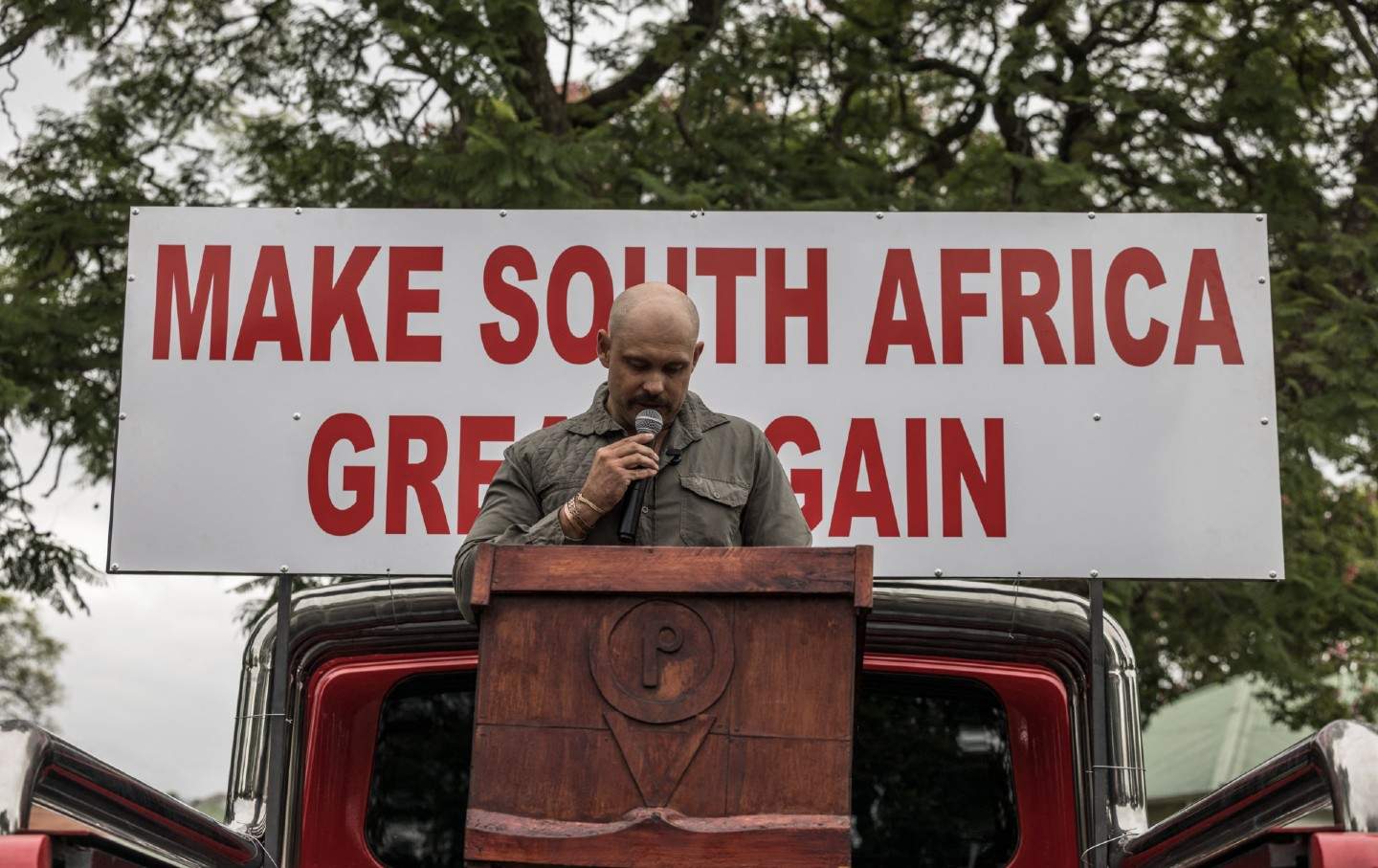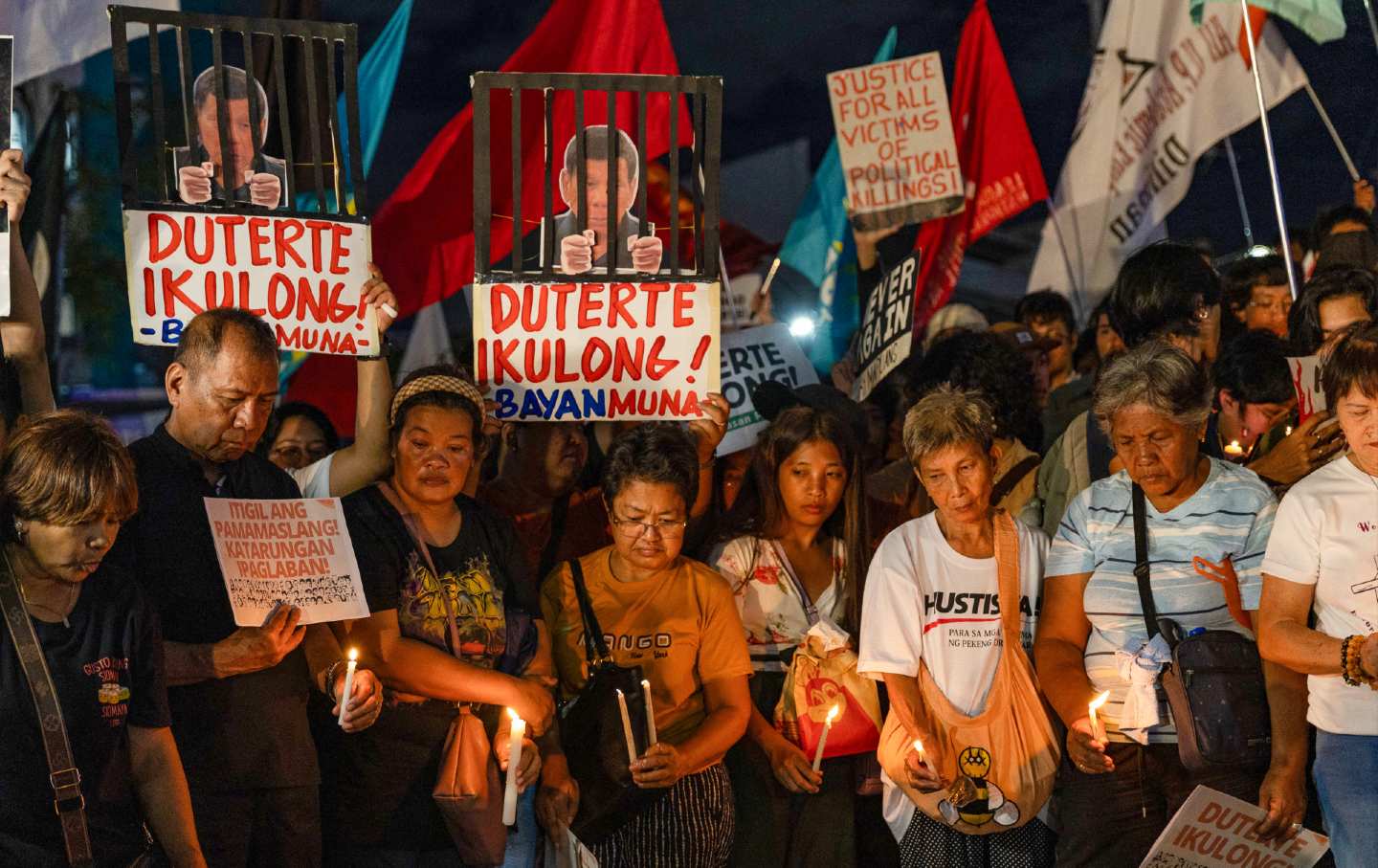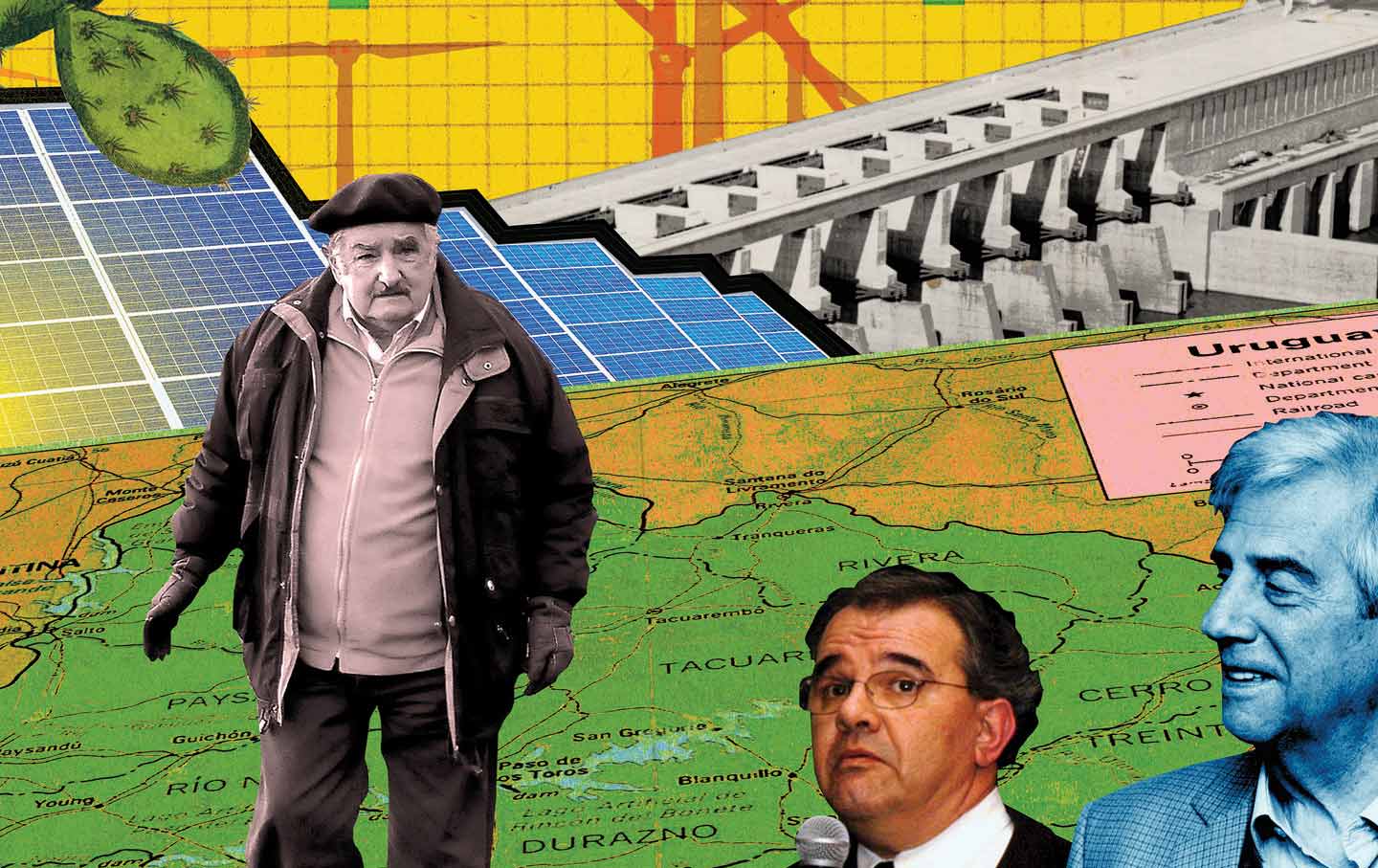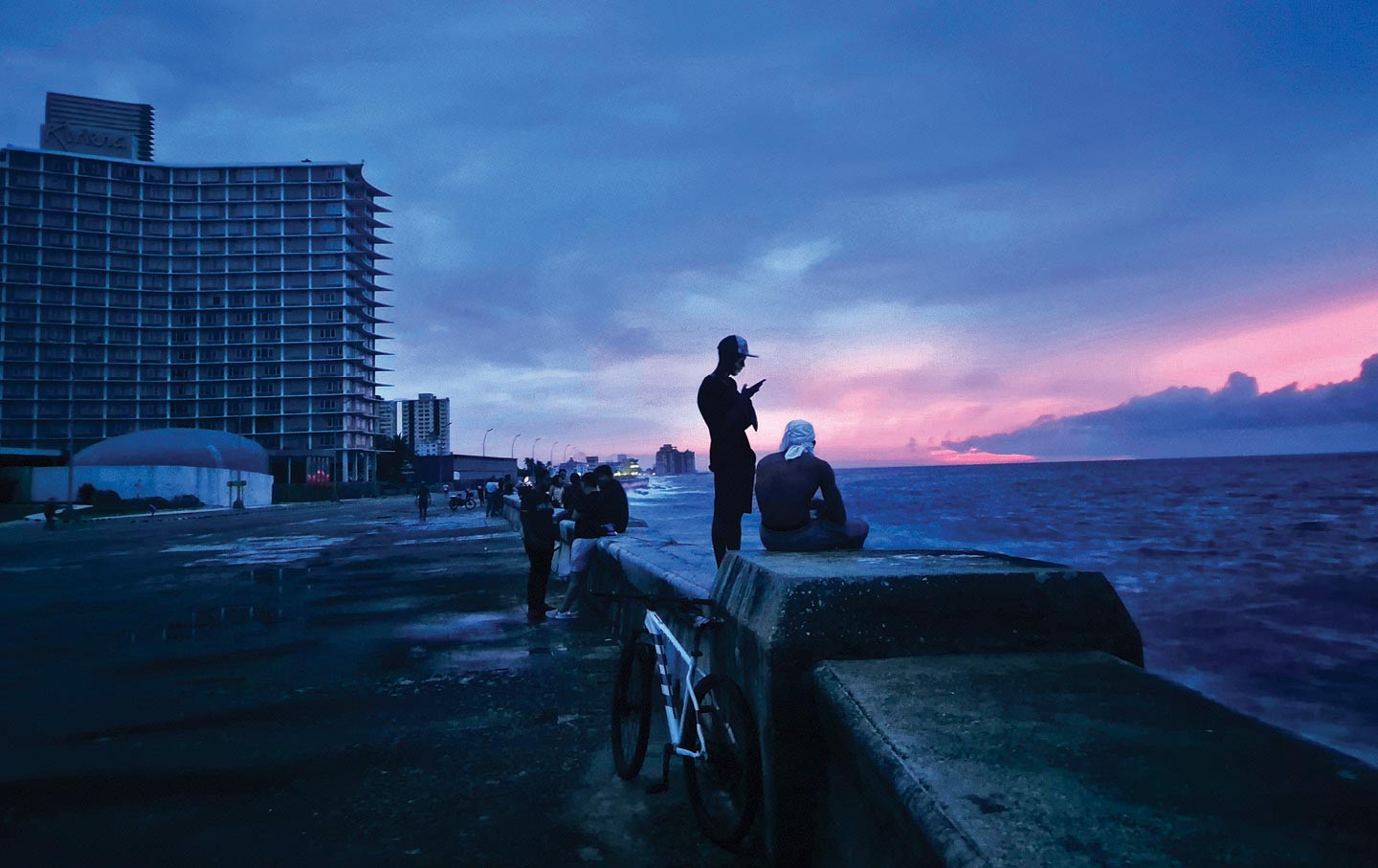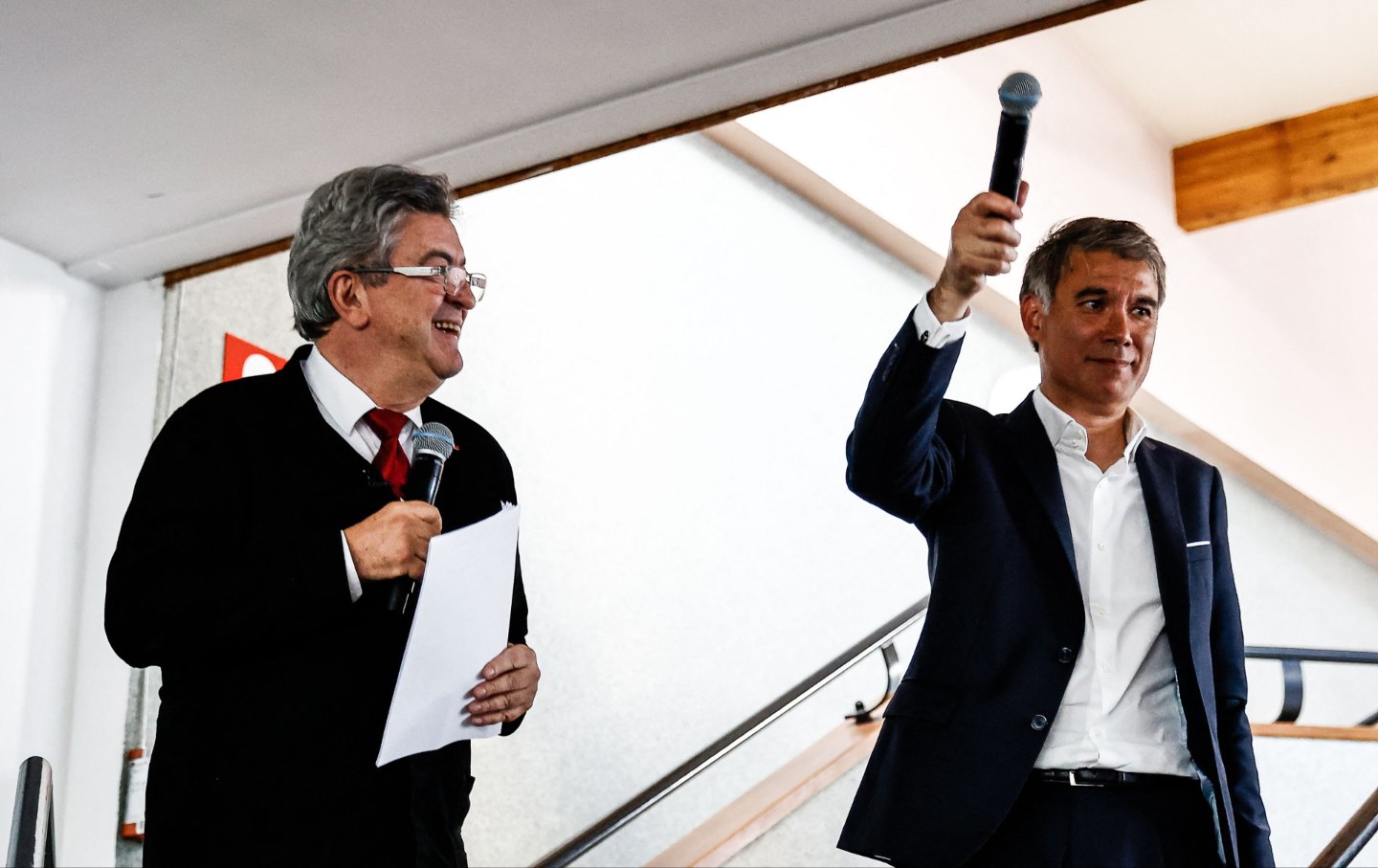Architects Must Refuse to Profit From the Ruins of Palestine
Gaza is a site of human tragedy, not a prize of war.
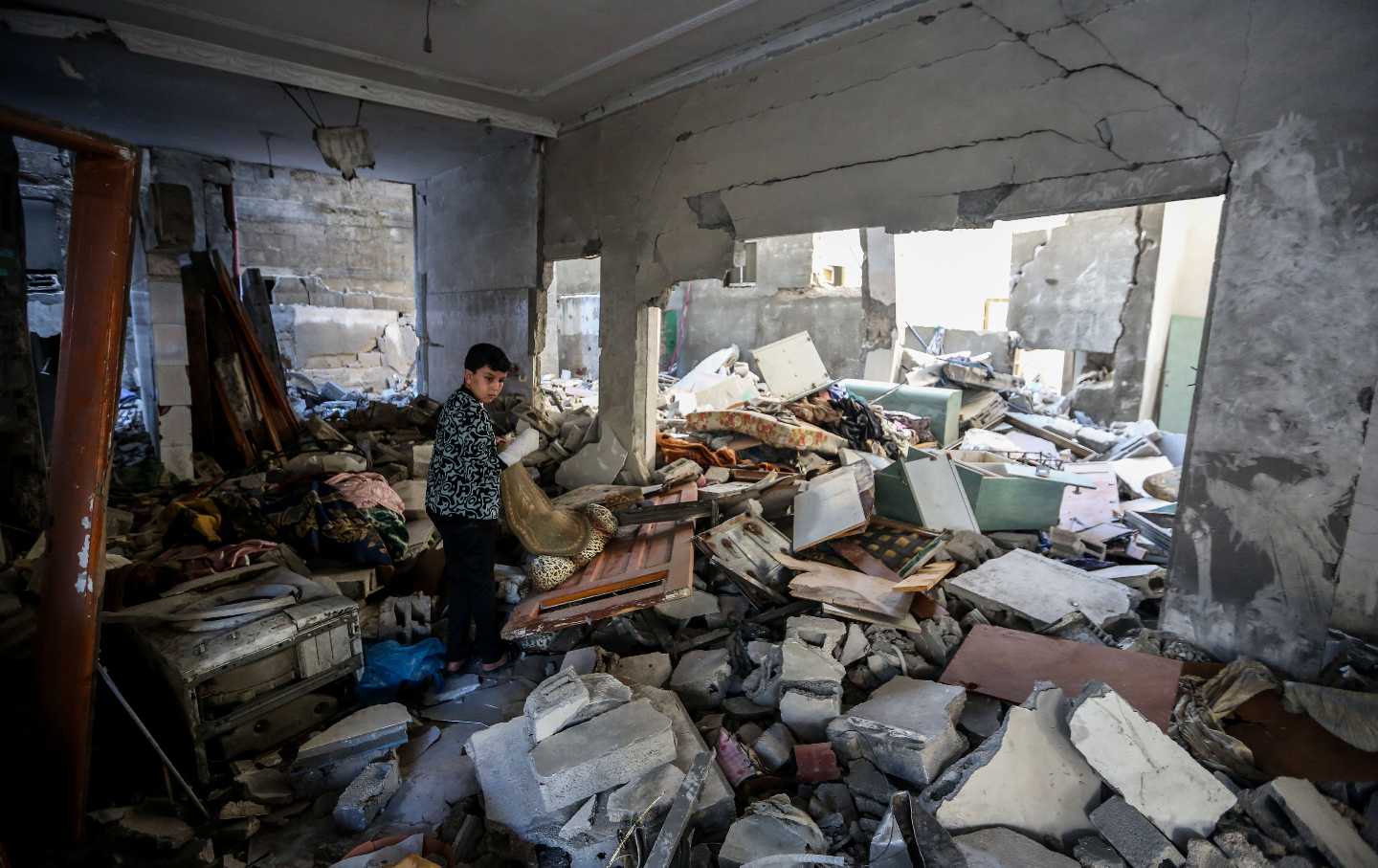
At the time of this writing, the Gaza Strip is in ruins. The families of hostages held by Hamas have petitioned for an exchange of “everyone for everyone”—all Israeli prisoners in Gaza for all Palestinian prisoners in Israel—yet the Israeli government repeatedly refuses these requests in favor of a ground invasion that will inevitably be backed by the United States. Despite a crackdown on speech expressing sympathy or support for Palestinians by governments, employers, and administrators, Jews, Muslims, Christians, and the nonreligious alike are protesting in public spaces and on campuses around the world. They are calling for a cease-fire. They decry the air strikes on civilians; the blockades of food, water, fuel, and medical aid; and the communications blackout, as well as the wholesale killing of journalists, that prevents these crimes from being reported. But above all, they reject the West’s complicity in the senseless slaughter of Palestinians in Gaza—more than 40 percent of them children—through its unconditional support of the Israeli government, a slaughter that the Israeli genocide scholar Raz Segal describes as “a textbook case of genocide.” This violence did not begin in October of 2023: Gaza has been besieged by Israeli forces for 16 years, its residents subjected to constant surveillance and extrajudicial killings and forced to live in desperate poverty. Hamas’s killing of Israeli civilians on October 7 was a horrific act. And the Israeli response has been so thoroughly disproportionate, the refusal to meaningfully engage in negotiations so blatant, that it is clear to me that some lives are indeed valued more than others.
Images from Gaza no longer show a city but rather a sea of rubble—under which countless people have been trapped and left to die. Religious buildings that have lasted millennia have been treated with the same deference as hospitals and apartment buildings, which is to say none at all. The scene is one of total devastation. And when the dust clears—when there is no longer a Gaza to speak of—the discussions of rebuilding will begin. History suggests that the people participating in those discussions will not be Palestinians or their allies. They are unlikely to be architects and theorists such as Michael Sorkin, Salem Al Qudwa, and Yara Sharif, who shared their hopes and dreams for a sensitively built, historically informed, sustainable, and democratic Gaza in the 2021 book Open Gaza, which they published in response to Israel’s last bombardment of the territory, in 2014. Nor are they likely to be well-meaning architecture or urban-planning graduate students in the inevitable studio classes that always follow urban ruination. The people who rebuild Gaza will all too likely be Israeli settlers and developers cementing their hold on the spoils of war.
This became clear as soon as the destruction started. In an interview on MSNBC, former Israeli ambassador to the US Michael Oren admitted it rather flagrantly, describing Gaza as prime, fertile real estate with wonderful coastlines. On October 30, WikiLeaks posted a leaked letter from the Israeli Ministry of Intelligence detailing a tripartite plan to open a corridor for refugees and establish tent cities in the Sinai, followed by the construction of cities in the northern Sinai to which Gazans would be permanently relocated.
But perhaps the most vile example of colonialist glee came recently when, in an Instagram post, the Israeli entrepreneur Alex Daniel shared an AI-generated image of what he called “the new tourist and vacation city in the south that is going to be built soon in Israel: Nova.” The image was par for the course for AI content: Roller coasters curled around shiny glass skyscrapers straight out of a Dubai fever dream while yachts sailed on a crystal-blue artificial lake, itself encircled by freeways. Glitzy buildings peppered what holes were left in the landscape, and boxy tech hubs crowded the scene’s periphery. The post was a rare lapse in the pretense that Israeli elites support a two-state solution, and the backlash was instant and severe. (Daniel still hasn’t unlocked his account.)
Yet the gaffe was merely an exaggerated version of the kinds of rebuilding projects that often follow humanitarian catastrophes. Despite all the post-Katrina hand-wringing about climate change, the city of New Orleans was tourist-ified and purged of the poorer residents who’d lost everything in the floods, its school system privatized. After Russia started its horrific attack on Ukraine, Norman Foster, the erstwhile yacht builder for despots and oligarchs, came out of the woodwork with an offer to rebuild it. An ethnic cleansing of nomadic tribes in western Saudi Arabia is taking place to make way for NEOM, a consumerist megacity that has enlisted some of the biggest firms in architecture. In the wake of any catastrophe, no matter how appalling and bloody and tragic, capitalism, with architecture as its handmaiden, is always there. By all indications, Israel’s ruling class will not see Gaza as a site of human tragedy, but rather as a prize of war, an investment, and a tabula rasa for architectural production—a completion of its settler colonialist project.
Consider this my attempt to say to the field of architecture in a way that matters: Do not participate in this. Do not build shiny skyscrapers on the graves of entire lineages wiped out in a single blast, or luxury condos on the barren land where, before the bombs fell, Palestinian families were forcibly removed from their homes. Do not wag your finger and say “It’s complicated” when the world has seen the footage of people searching for their loved ones among a sea of white body bags, and of journalists weeping on television after hearing of the killing of their wives and children. Do not contribute to this violence, and do not give it an architectural form. Do not contribute to the legacy of architects who profited from the devastation of thousands of innocent human lives. Do not do it. It is my hope that many architects and firms will refuse work in an ethnically cleansed Palestine, just as they had the moral clarity to suspend their projects in Russia after Putin’s invasion of Ukraine. But to those who will answer disaster capitalism’s call: When the buildings are completed and the world looks back on this moment with great shame, you will be implicated, and those who chose not to be complicit will not forgive you.
Support independent journalism that exposes oligarchs and profiteers
Donald Trump’s cruel and chaotic second term is just getting started. In his first month back in office, Trump and his lackey Elon Musk (or is it the other way around?) have proven that nothing is safe from sacrifice at the altar of unchecked power and riches.
Only robust independent journalism can cut through the noise and offer clear-eyed reporting and analysis based on principle and conscience. That’s what The Nation has done for 160 years and that’s what we’re doing now.
Our independent journalism doesn’t allow injustice to go unnoticed or unchallenged—nor will we abandon hope for a better world. Our writers, editors, and fact-checkers are working relentlessly to keep you informed and empowered when so much of the media fails to do so out of credulity, fear, or fealty.
The Nation has seen unprecedented times before. We draw strength and guidance from our history of principled progressive journalism in times of crisis, and we are committed to continuing this legacy today.
We’re aiming to raise $25,000 during our Spring Fundraising Campaign to ensure that we have the resources to expose the oligarchs and profiteers attempting to loot our republic. Stand for bold independent journalism and donate to support The Nation today.
Onward,
Katrina vanden Heuvel
Editorial Director and Publisher, The Nation

